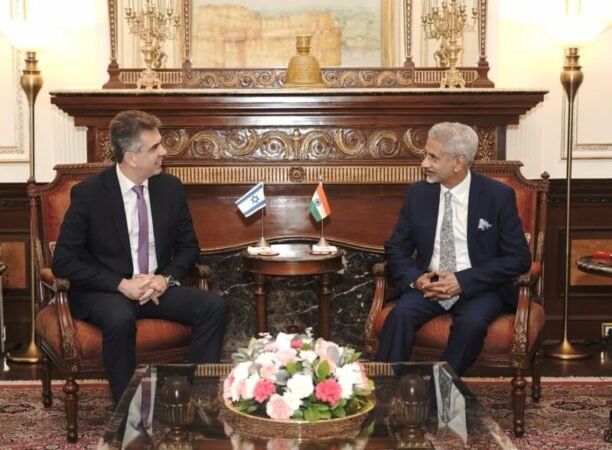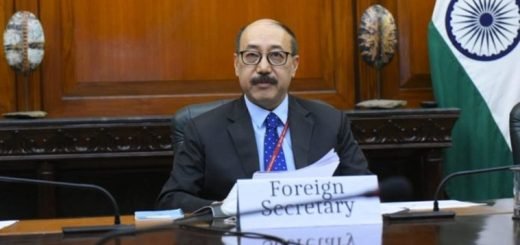I2U2 Efforts to Push Back Against China’s Growing Footprint in the Middle East

According to a report by Foreign Policy, India is planning an ambitious connectivity project to counter China’s footprint in the Gulf. The project aims to link New Delhi to the Middle East through roads, rails, and seaports. National Security Adviser Ajit Doval held a meeting with his US and UAE counterparts, attended by Saudi Crown Prince Mohammed bin Salman, to discuss a joint infrastructure project that would connect the Middle Eastern countries via rail.
The idea for the project emerged during meetings of the I2U2 group, which also includes Israel, over the last year. The I2U2 group, a relatively new vehicle for US-India cooperation in the Middle East, was not envisioned as a China-focused entity given the close commercial cooperation that both the UAE and Israel enjoy with China.
Although Israel isn’t a formal part of the project since Saudi Arabia has not formalized relations with it, its membership in I2U2 suggests it will have a role. The connectivity project shows how much India benefits from the Abraham Accords, the Trump-era agreement that normalized relations between Israel and several of its Arab neighbours. The deal allowed for the establishment of the I2U2 group, and discussions there gave rise to the new initiative.
The proposed initiative signals that India and the United States are ready to take their joint efforts to counter China beyond the Indo-Pacific region and into the Middle East. The Biden administration views the connectivity project as a way to balance Chinese power in the region. According to a former senior Israeli official, “Nobody said it out loud, but it was about China from day one.”
The project aims to leverage India’s capacity as an infrastructure provider. Through the new initiative, Indian officials hope to develop a deeper infrastructure footprint in the Middle East to counter China’s Belt and Road Initiative (BRI). In a best-case scenario, India could eventually benefit from land and sea trade routes stretching from Israel and the UAE all the way to Greece’s Piraeus port and onward into Europe.
The Middle East is an increasingly significant space for India, given its trade interests there and the several million Indians who work in the region and send remittances back home. The proposed initiative also shows India’s eagerness to participate in a new multilateral effort to push back against China’s growing Middle East footprint driven by BRI investments and a recent strategic agreement with Iran.
Moreover, recently Israeli Foreign Minister Eli Cohen visited New Delhi to discuss the connectivity project, stating that India can play a key role in strengthening regional stability in the Middle East. India has opportunities to scale up influence, trade, and diplomacy beyond the Indo-Pacific region while holding the G-20 presidency, enjoying rapid economic growth, and overtaking China as the world’s most populous country.


















